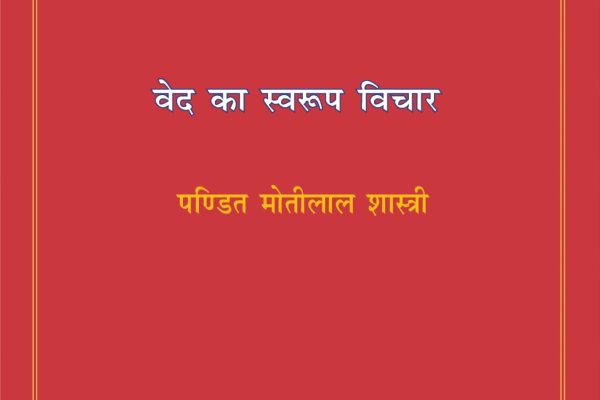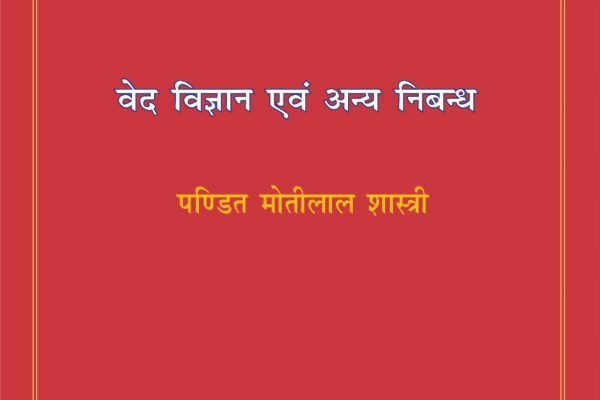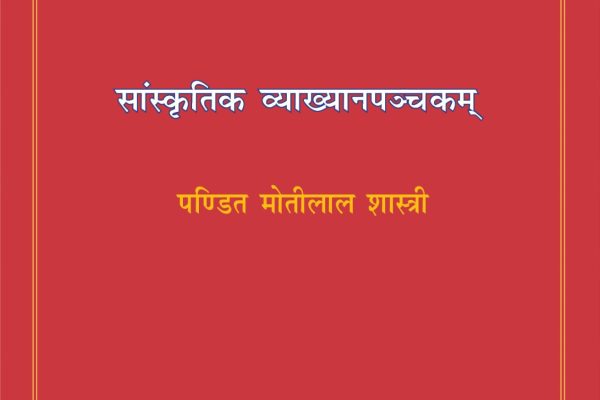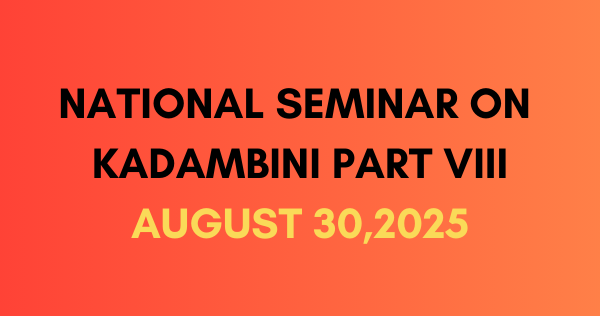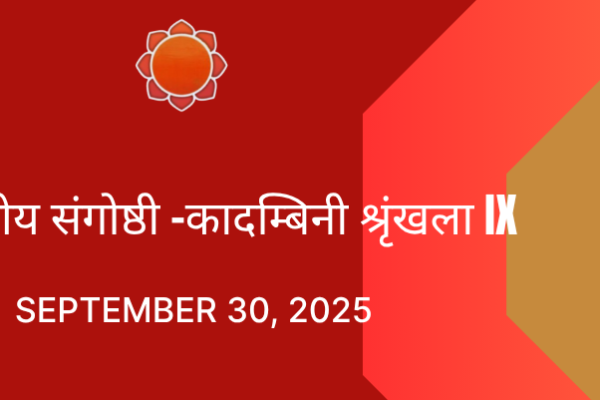Shri Shankar Shikshayatan is organising an annual series of discussions on Pandit Madhusudan Ojha’s Kadambini. The book explores in great detail the ancient Indian weather science envisioned by our seer-scientists of yore for forecasting normal, abnormal and excessive rain-fall as also drought in the rainy season of a year on the basis of close and careful observation of the four kinds of causes. The good and adverse impact of the various kinds of comets has also been discussed in this treatise. It serves as a conclusive proof of Pandit Madhusudan Ojha’s profound scholarship in astronomy, astrology and other related ancient sciences. Read/download Kadambini Pandit Motilal Shastri Memorial Lecture on Kadambini National Seminar on Kadambini Part I January 31,2025 Chair: Prof. Devi Prasad Tripathi, former Chancellor, Uttarakhand Sanskrit University, Haridwar Speakers: Prof. Shyamdeva Mishra, Central Sanskrit University, Kanpur Dr Subhash Pandey, Banaras Hindu University, Varanasi Dr Rameshwar Dayal Sharma, Central Sanskrit University, Jaipur Introductory remarks by Prof. Santosh Kumar Shukla of Jawaharlal Nehru University and Convener, Shri Shankar Shikshayatan. ——————————————————————————————————————- National Seminar on Kadambini Part II February 28,2025 Chair: Prof. Girija Shankar Shastri,Benaras Hindu University, Varanasi Speakers: Dr Krishna Kumar Bhargava, National Sanskrit University, TirupatiDr Ashwini Pandey, Central Sanskrit University, BhopalDr Ashish Chaudhary, Central Sanskrit University, Bhopal Introductory remarks by Prof. Santosh Kumar Shukla of Jawaharlal Nehru University and Convener, Shri Shankar Shikshayatan. —————————————————————————————————————– National Seminar on Kadambini Part III March 28,2025 Chair: Prof. Parmanand Bharadwaj, Shri Lal Bahadur Shastri Rashtriya Sanskrit University, Delhi. Introductory remarks by Prof. Santosh Kumar Shukla of Jawaharlal Nehru University and Convener, Shri Shankar Shikshayatan. Speakers: Prof. Vishnu Kumar Nirmal, Central Sanskrit University,Jammu. Dr. Rupesh Kumar Mishra, Maharishi Panini Sanskrit and Vedic University, Ujjain. Dr.Brahmanand Mishra,Central Sanskrit University, Devprayag, Uttarakhand. National Seminar on Kadambini Part IV April 30, 2025 Chair: Prof. Santosh Kumar Shukla of Jawaharlal Nehru University and Convener, Shri Shankar Shikshayatan. Speakers: Prof. Fanindra Kumar Chaudhary, Shri Lal Bahadur Shastri Rashtriya Sanskrit University, Delhi. Dr Balak Ram Saraswat, National Sanskrit University, Tirupati. Dr Bhupendra Kumar Pandey, Central Sanskrit University, Bhopal Dr Varun Kumar Jha, Kameshwar Singh Darbhanga Sanskrit University, Darbhanga.—————————————————————————————————– National Seminar on Kadambini Part V May 31, 2025 Chair: Prof. Santosh Kumar Shukla of Jawaharlal Nehru University and Convener, Shri Shankar Shikshayatan. Speakers: Prof. Madan Mohan Pathak, National Sanskrit University, Lucknow. Dr Subash Chandra Mishra, National Sanskrit University, Jaipur. Dr Brajesh Pathak, National Sanskrit University, Rajiv Gandhi premises. Dr Navin Tiwari, National Sanskrit University, Ranvir premises. National Seminar on Kadambini Part VI June 30, 2025 Chair: Prof. Santosh Kumar Shukla of Jawaharlal Nehru University and Convener, Shri Shankar Shikshayatan. Speakers: Dr Divesh Sharma,Central Sanskrit University, Eklavya premises, Tripura. Dr Nigam Pandey, Dharma Samaj Sanskrit College, Muzaffarpur, Bihar. Dr Naresh Sharma, Maharshi Valmiki Sanskrit University, Kaithal, Haryana. Dr Vinod Sharma, Central Sanskrit University, Vedavyasa premises, Himachal Pradesh. National Seminar on Kadambini Part VII July 31, 2025 Chair: Prof. Santosh Kumar Shukla of Jawaharlal Nehru University and Convener, Shri Shankar Shikshayatan. Speakers: Dr Yagya Dutt, Central Sanskrit University, Eklavya premises, Tripura. Dr Suresh Sharma, Central Sanskrit University, Raghunathkirti premises, Deoprayag, Uttarakhand. Dr Ganesh Krishna Bhatt, Central Sanskrit University, Guruvayur premises, Kerala. Dr Ratish Kumar Jha, Dr Jagannath Mishra Sanskrit College, Madhubani, Bihar. National Seminar on Kadambini Part VIII August 30, 2025 Chair: Prof. Santosh Kumar Shukla of Jawaharlal Nehru University and Convener, Shri Shankar Shikshayatan. Speakers: Dr Chandan Hota, Central Sanskrit University, Eklavya premises, Tripura. Dr Anil Kumar, Central Sanskrit University, Bhopal premises,Madhya Pradesh. Dr Mrityunjay Tiwari, Maharshi Panini Sanskrit and Vedic University, Ujjain, Madhya Pradesh. Dr Yogendra Kumar Sharma, Shri Lal Bahadur Shastri Rashtriya Sanskrit University, Delhi.
